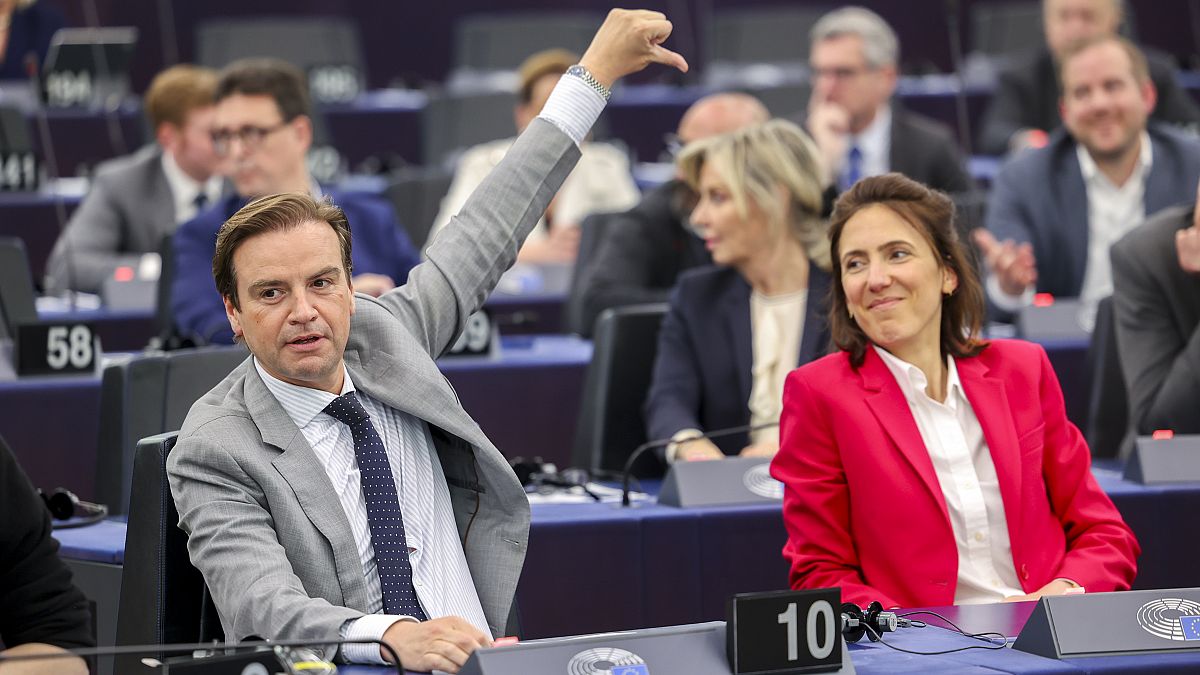The EU liberals will not expel the Dutch VVD party – or vote on throwing them out – despite the party’s decision to enter a four-way coalition with the far-right PVV party of Geert Wilders, two sources familiar with the discussions told Euronews.
Every MEP counts at a time when Renew Europe is battling with the far-right ECR group to become the third force in the European Parliament for the next five-year mandate.
The EU liberals in the European Parliament were due to vote on whether to expel the Dutch VVD party immediately after the elections, on 10 June, but following Renew Europe’s the heavy loss of 21 seats last week, it postponed the decision without setting a date.
Instead, the group is likely to send an observer mission to the Netherlands to check whether the party is crossing any red lines in terms of values and liberal principles – though the official decision on the next steps will be taken at an Alliance of Liberals and Democrats for Europe (ALDE) council party in Vilnius (Lithuania) this weekend.
ALDE’s move – one of the three political forces that make up the centrist Renew Europe group together with the French Renaissance and the European Democrats – would contradict a commitment by the group’s president, Valérie Hayer, from the French delegation, which suffered major losses to Marine Le Pen’s Rassemblement National, receiving 13 MEPs (down from 23).
During her campaign, Hayer signed a declaration on behalf of Renew Europe in which the leaders of the Socialists and Democrats (S&D), Greens and Left groups agreed “never to cooperate nor form a coalition with the far right and radical parties at any level”.
That commitment was not consulted on internally within the party and was only made by the group’s president.
How did Renew Europe end up here?
Last November, Dutch voters handed victory to Wilders’ far-right party, which won 23.5% of the vote in a general election in the Netherlands.
After months of fruitless negotiations in the Netherlands, the Dutch VVD, the party of outgoing Prime Minister Mark Rutte, announced that it had reached a four-way coalition agreement with the far-right PVV of Geert Wilders, the centre-right New Social Contract (NSC) and the populist Farmer-Citizen Movement (BBB).
Following the announcement, Hayer told French media that the VVD had distanced itself from the group’s values and that Renew Europe should decide together what to do next.
Yet an official motion to expel the Dutch party – as opposed to petitions to discuss the issue – was never tabled in ALDE, and the party does not take such “drastic decisions” unless there is a crime or an official investigation, a party source told Euronews.
In the June elections, Wilders’ party (PVV) won six seats in the European Parliament.
The PVV has joined the far-right Identity and Democracy (ID) group, which currently has 58 MEPs and has so far been excluded from key positions in the parliament due to a ‘cordon sanitaire’.
Negotiations on the final composition of the parliamentary groups are still ongoing, with a deadline of 4 July – so the balance of power could still shift slightly.

